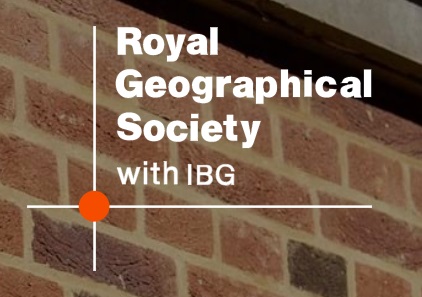At the Royal Geographical Society/ Institute of British Geographers’ Annual International Conference 2020, which will be held between the 1st and the 4th of September 2020 in London, UK, IMAJINE researchers from National University of Ireland Galway, Aberystwyth University, Harokopio University of Athens, and University of Oviedo are organising a session ‘Researching spatial justice – ‘making a difference’.
More about the conference you may find here. Call for papers deadline: 14th of February 2020.
The purpose of this conference session is to generate a wider discussion (through paper presentations) on how spatial justice is understood and applied; how it ‘makes a difference’, particularly in policy and methodological terms. This meets IMAJINE objectives to a) enhance conceptual understanding of spatial injustice and territorial inequalities; b) enrich the empirical knowledge base on territorial inequalities; c) evaluate the impact of perceptions of spatial justice on the delivery of key services and infrastructure.
Researching spatial injustice – ‘making a difference’
Convenors: Marie Mahon (National University of Ireland Galway, Ireland); Maura Farrell (National University of Ireland Galway, Ireland); Mike Woods (Aberystwyth University, UK); Apostolos Papadopoulos (Harokopio University, Greece); Bryonny Goodwin-Hawkins (Aberystwyth University, UK); Ana Vinuela (Universidad de Oviedo, Spain).
Sponsored by the Geographies of Justice Research Group
This session invites papers on the challenges of ‘making a difference’ with contemporary research on spatial injustice. Spatial justice is broadly understood by scholars as the realisation of spatial aspects of social justice (Léfebvre, 1968; Harvey,1973), as emphasising a content- and values-focused perspective on spatial justice (Pirie, 1983), as the production of space as an act of (in)justice, and a normative commitment to the equitable spatial distribution of resources, services and access as a basic human right (Soja, 2010; Santana Rivas, 2012). ‘Making a difference’ implies the capacity for research on spatial injustice to produce evidence and propose solutions to mitigate the negative societal impacts of spatial inequalities.
Spatial justice is applied increasingly to critique contemporary EU and national public policy positions and actions on issues such as regional development, territorial cohesion, territorial governance, austerity budgeting, public service delivery and environmental protection. The challenge for research in terms of how it can bring about change may be related to how the concept of spatial justice is understood by policymakers; for example, how it is interpreted and applied to shape policy and programme targets at various spatial scales and what drives those interpretations. Challenges may also be methodological; for example, lack of relevant data at appropriate levels and spatial scales, particularly data sources collated by governments; over-reliance by governments on measures such as GDP to assess and respond to need; missing levels of governance from which a degree of experience or expertise in identifying and setting context-specific policy targets would emanate.
References:
Harvey, D. (1973) Social Justice and the City. Athens: University of Georgia Press.
Lefebvre, H. (1991) The production of space. Translated by D. Nicholson-Smith. Oxford, UK: Blackwell.
Pirie, G.H. (1983) On spatial justice. Environment and Planning A, 15, pp.465-573.
Santana Rivas, D. (2012) Exploring Some Recent Trajectories of Justice in Contemporary Human Geography: From Territorial Justice to Spatial Justices. Cuad. Geogr. Rev. Colomb. Geogr. 21 (2) pp.75-84.
Soja, E. (2008) The City and Spatial Justice. Paper prepared for presentation at the conference Spatial Justice, Nanterre, Paris, March 12-14, 2008.

